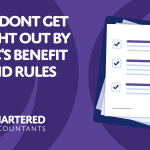If your business year end is 31 March or 5 April then now is the time to start thinking about whether any action needs to be taken to reduce your Income or Corporation Tax liability.
The first step is to establish what your tax liability is likely to be with reference to your management accounts. You will probably need assistance from your accountant as the taxable profits are often different to those in the accounts.
Once you have estimated the liability, the following actions can be taken to reduce the tax. Some of the suggestions involve committing cash so you need to ensure the business has sufficient cash reserves to do so. You also need to bear in mind that accelerating expenditure will weaken the balance sheet of the business so you need to be mindful of how suppliers, lenders or potential funders will view this.
Pension contribution
Payments into personal or company pensions are one of the most tax efficient investments around today although you need to be aware the cash could be tied up for many years. You will need to speak to an IFA (Independent Financial Adviser) before making any payments and you should also be aware that in order to qualify for tax relief in 2015/16 the funds must have left your account and be received by the pension company before your financial year end.
Capital Allowances
Tax relief on investments in plant, machinery, IT equipment, buildings etc is given as a ‘capital allowance’ so you may wish to consider whether the business needs any new machinery, vans or computers.
Time is of the essence with regards to Capital Allowances as the relevant equipment must be brought into use before your year end to qualify in the current tax year.
The rules surrounding Capital Allowances (and in particular AIA – Annual Investment Allowances) are extremely complicated and thanks to a fall in the AIA on 31 December it may actually be beneficial to delay expenditure until 2016/17.
You should always speak to your accountant before investing in capital items as there may be tax or funding implications to consider.
Bad debts
Tax relief is given on debts you know are bad at the financial year end so now is a perfect time to instruct solicitors or debt collectors to chase old amounts. An instruction to a lawyer before your year end is good evidence you knew a debt would probably be bad at that date.
Software upgrades
If any of your key software is becoming out of date then the final month of your financial year is a good time to upgrade to the latest version.
Repairs to buildings or equipment
Repairing broken or damaged equipment is fully tax deductible. You do need to be careful that building repairs aren’t classed as an ‘improvement’ as this may not qualify for immediate tax relief. Again, if unsure you should discuss with your accountant before proceeding.
Training
Investing in staff training is a great way of reducing your tax bill as well as improving team morale and skills.
The training needs to have been completed by 31 March (or 5 April) otherwise only a proportion will be tax deductible this year.
Website
If your website (or other marketing materials) are outdated then this could be a good time to update them.
The website would need to be live by the year end to qualify.
Losses on contracts
If you undertake construction work (or other projects that may result in losses) then you can recognise these losses (and therefore receive tax relief) in the year the losses are incurred rather than waiting until the project finishes.
You should therefore scrutinise each ongoing contract and flag up any anticipated losses to your accountant.
Staff bonuses
If your business is performing well and you wish to reward key members of your team then you can bring in a provision for bonuses that are paid after the year end provided it can be demonstrated that the bonus relates to their results / performance in the current year.
The bonus must be paid and entered into he payroll within 9 months of your year end.
Holiday Pay
As with bonuses above, if staff have built up a holiday entitlement at your year end but don’t take them until later in the year then you can bring in a provision for the cost of these holidays into your year end profit and loss account. As many staff take their holidays in the summer there could be some significant provisions to make if your holiday year runs Jan to Dec.
Lease Dilapidations
If your business rents premises and there are provisions in the lease for you to return the building to its original condition then you can bring in a provision for these costs to further reduce your tax bill.
Due to the subjective nature of any such estimates it may be worthwhile obtaining quotes to back up your calculations should HMRC challenge them.
Summary
There are a multitude of ways to legitimately reduce your business tax liability but you must spend time looking at the options with a good (chartered) accountant.
For a free copy of either our Tax Saving Opportunities or Preparing for your Accountant factsheets please contact us.




